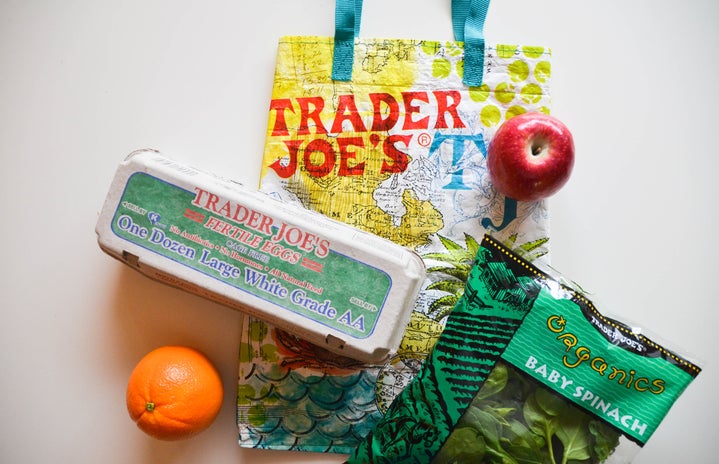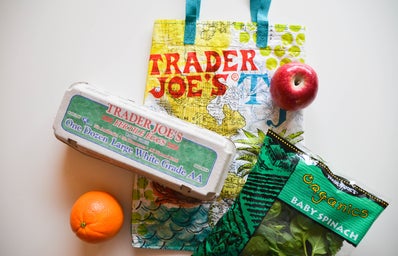Being vegan can seem difficult but with all the food substitutes and access to a variety of foods and thousands of recipes, going vegan is a lot easier compared to the past. I’m just going to highlight some of the dietary changes regarding veganism but there are some other things to be conscious of as well. Briefly, veganism is the elimination of all animal products. This includes materials or derivatives from animals in clothing, makeup, skincare, and most notably, foods. There is dialogue about whether veganism is purely ethical, meaning all of the aforementioned animal products are excluded from daily living, or if it can be environmental or health-related as well. For the purpose of limiting confusion, I’ll refer to a vegan diet (typically health or environmental reasoning) as plant-based eating (even though that is still imprecise) and a vegan lifestyle (typically ethical reasoning) as vegan.
Disclaimer: This is general advice aimed to educate people about how to go (more) vegan. This is not intended to be taken as absolute truth as people have different dietary needs and health backgrounds. As of March 11th, this is what I know, but information changes.
- Vitamins and Minerals
-
Obviously it’s important, for any diet to be exact, to get the right vitamins and minerals. I’m not a nutritionist or a dietician so I can’t say or recommend anything specific about what supplements. In that regard, it’s important to talk to your doctor or healthcare professional about what you might need to be mindful of. A vegan diet can naturally lack some vitamins that are more present in an omnivorous diet. This, however, does not mean that a plant-based diet is less nutritional or that it isn’t “healthy.” This just means that if you choose to become fully plant-based or vegan that there are some aspects that may need more attention.
- Transition Into It
-
For the majority of people, it’s a lot easier if you transition into a new diet/lifestyle. Going vegetarian before going plant-based and then going vegan, if that’s your end goal. Vegetarianism excludes all meat, poultry, and seafood. The vegetarian diet includes dairy and eggs however some people choose to exclude or limit those in addition to meat. There is also pescetarianism, which is vegetarian with the addition of fish/seafood. A lot of people think they have to leave all of their favorite foods behind when they go vegan or vegetarian, which is not entirely true. Some classic snacks have animal products in them but there are so many vegan substitutes that taste just as good or even better. Even some of those “forbidden foods” in moderation are still perfectly okay if you don’t intend to have a vegan lifestyle.
- Read the Labels
-
It seems obvious that you’ll have to read the ingredient list to make sure that there aren’t any animal products. You might be surprised to see how many products that are “accidentally vegan” that you already eat. It might also be surprising that some products “may contain milk and eggs” or have whey protein listed as an ingredient. Gelatin is another thing that is in foods that people are not always aware of.
- Don’t Expect to be Perfect
-
Especially in the beginning, it is easy to forget what foods or meals have animal products that you’re used to eating. It’s important to recognize it and learn from it, but know that it happens. As long as it isn’t intentional, it is perfectly okay to accept the mistake and change it the next time.
With that said you don’t have to be completely vegan if that diet is not sustainable for you. This means being more vegan or less animal product-focused can be beneficial if complete veganism isn’t achievable.
- Don’t Overly Restrict
-
It’s still important to eat a variety of foods and to adhere to your dietary needs and preferences. Often people think veganism itself is restrictive, it can be if you’re not eating right, but it doesn’t have to be. Raw veganism, fruitarian diets, and juice cleanses are all vegan but they’re still potentially missing some important micro- and macro- nutrients.
- Be Careful What You Watch
-
Youtube is a great place to see how it’s possible to eat vegan or have a vegan lifestyle but it’s best to be mindful of what you’re watching. Some of these videos showcase restrictive eating patterns that are in fact vegan but are lacking in some micros or macros. It can be useful to see some of the “what I eat in a day” videos but don’t take it as a fact and be aware that it is only one day in a lifetime, not every day looks like that, and not every day should.
Some videos focus on specific macros or caution against others-mostly fats, oils, and refined carbs/sugars so that’s another thing to keep in mind. There is a difference between excluding animal products versus excluding sugar or fats. Often the food exclusions are a result of restrictive eating and not always based on the intention of being vegan.
The bottom line is that the videos are intended for educational or entertainment purposes not to be taken as fact.
- Expect Questions, Criticism, and Jokes
-
Even after a year, I am still asked “how do you get your protein?” sometimes people are actually curious and I appreciate that. But other times it’s more of a “joke” or sarcastic criticism. A lot of the people I talk to about vegetarian/vegan ask what it is and what I eat (because they don’t know/are curious about my diet) and then suddenly become experts about every micro and macronutrient I’m lacking, the biggest being protein. This is just, unfortunately, something to get used to.
Before I went vegetarian, I used to “joke” all the time when my vegetarian friend and I were going out for a meal. I said something like “you should order this” pointing to a steak or I would say “do you want this” referring to the burger I had ordered.
I’ve learned since then that I was ignorant, I’ve learned from my mistakes and admitted my stupidity. Although I do have one thing going for me, I never asked how she got her protein.
- Veganism is NOT a “diet”
-
Environmental, health and ethical reasons are typically the motivators for going vegan. It is not a diet in the sense of a change of food patterns with the intention of weight loss/gain. It is intended to be more long term and not for body manipulation. Weight gain/loss can happen while transitioning to a vegan diet, but that is not the purpose.
There are, first of all, more accurate and more measurable ways to lose/gain weight. Second, the philosophy of veganism is not based on the manipulation of your body size, rather it is the rejection of the exploitation and abuse of animals especially for commercial/consumer practices.
If you’re going vegan because you want to change your weight, I don’t recommend it because it is more restrictive and less sustainable in that regard.
- Anecdote is NOT Fact
-
It should be a given that just because it works for one person doesn’t mean it works for everyone. Or that because one person is deficient in vitamin D or B12 that you are too. Or that “veganism is restrictive and not sustainable” because it was that way for one or even a few people. My point is, make sure it’s right for you and that you’re doing it right.
The purpose of this article is to show that veganism is possible and that you don’t have to be completely vegan, especially when transitioning. I don’t know if everyone can sustain themselves or their living on a vegan diet. It may not be realistic for some people to go completely vegan. Regionally it may be difficult to find vegan products or substitutes. Culturally or socially it could potentially isolate someone. I do not believe that pushing or forcing a diet on anyone is okay. With that said, given access to modern technology and production techniques it is much easier to become vegan or at least plant-based. I also don’t think it has to be an “all or nothing approach,” even meatless Mondays (or weekdays), can have a huge impact in many different aspects.
Definitions of terms used above
Plant-based: exclusion of animal products from diet (typically means few or no animal-related products or derivatives in a diet but the distinction is unclear), mainly environmental and health-related reasons, not necessarily excluding all animal-related products from daily living, (similar to flexitarian diet but not the same or as frequent consumption)
Vegan: a lifestyle and diet excluding all animal-related products from daily living (leather/suede, meat/poultry/seafood, dairy, eggs, animal derivatives, products using animal testing and sometimes honey)
Vegetarian: the exclusion of meat/poultry/seafood and animal derivatives
Pescetarian: the exclusion of meat/poultry and animal derivatives
but fish/seafood is still consumed
Diet: patterns of eating and food preferences (not restrictive patterns of eating with the intention of weight loss/gain)



